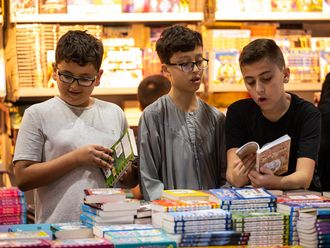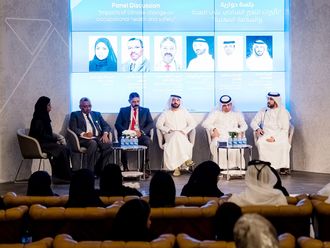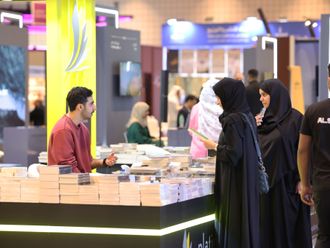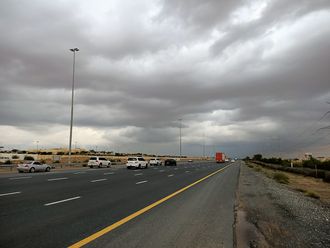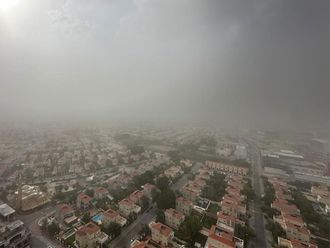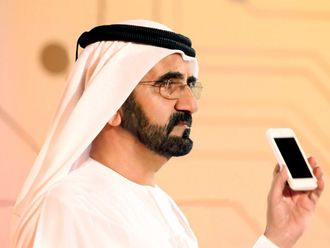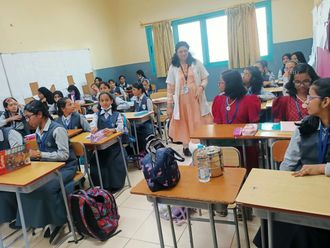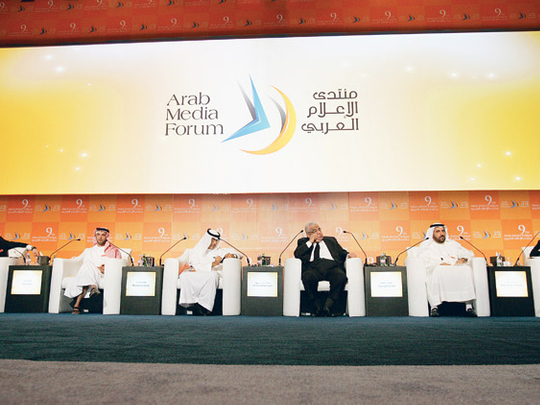
Dubai: In an effort to prevent foreign media taking over Arabic networks, local and regional media converged to discuss how to improve the local content in Arabic media with a special focus on television and broadcasting.
The session discussed the reasons and why the Arabic viewer likes foreign media more. Why is there a battle between Arabic content and dubbed or translated material? Is the government to be blamed for the lack of Arabic content media that appeals to the Arabic speaking viewers? Or should advertisement revenues take the responsibility for this problem?
Moderator Jumana Bu Eid urged the panelists to explain the lack of collaborative efforts between production companies to create high-scale Arabic shows and movies like older works such as movies like The Message and Omar Al Mukhtar.
Panelists agreed there is a lack of collaboration among production companies, regionally or internationally. Osama Al Shaikh, Head of Egyptian Radio and Television Network, stressed the issue of too many Arabic satellite channels, and why the culture of quantity instead of quality prevails within it. He said there are over 600 channels that show repetitive, weak, and sometimes offensive material. Arabic media should appreciate quality instead of quantity.
Saif Al Eslam Bin Saud Bin Abdul Aziz, Media writer and researcher said Arabic Media faces multiple challenges such as either abiding to governmental restrictions while producing a show, or tolerating private companies that evaluate a show according to the revenue it might attract. Mohammad Harib, director and writer of Freej, the 3D Emirati Cartoon series agreed that the media is under the mercy of advertisers and what they perceive as marketable.


